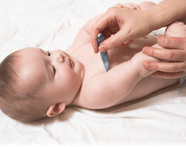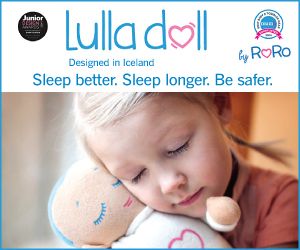Childhood Fever

Every year during flu season I am swamped with calls from concerned parents regarding the treatment of a childhood fever. While fevers are upsetting to parents and uncomfortable for a child, fevers are a natural response to infection. It is necessary to remind parents that they should trust the body to fight off infection on its own. I often have to remind my mothers and fathers that a moderate fever is a good thing!
How high is too high? When do I give Tylenol?
A fever is an indication that the immune system is working. The ability to generate a fever is a human response that essentially creates an inhospitable environment for viruses/bacteria. In other words, a higher body temperature will kill off and prevent the spread of viral and bacterial infections.
In my opinion it is best not to suppress a fever with antipyretic medication unless your child’s temperature gets up over 39°C (102°F). Aspirin should not be used at all to treat childhood fevers. Use products containing either ibuprofen or acetaminophen such as Tylenol®, Motrin®, and Tempra®. Use medications that have been specifically formulated for infants or children, and be sure to follow the dosage instructions.
If your child’s temperature is under 39°C and you choose to give them medication, you are actually hindering the immunological response to infection and possibly prolonging your child’s cold or flu. You are also denying your child the opportunity to develop their immune system, which down the road will help them fight off more serious infections.
Simple home interventions like tepid cloth compresses applied to the head, wet sock treatments, dressing your child in light clothing, and lastly giving your child a bath in lukewarm water are usually enough to prevent temperatures from climbing too high. Only if the child is shivering should a sponge bath, wet sock treatment or a tepid bath be avoided. A parent should aim to maintain and monitor a healthy childhood fever between 38°C – 39°C.
When should I call the doctor?
If your child has a fever and is under 4 months of age, consult a doctor. If your child is over 4 months of age and has a fever over 40°C, consult a doctor.
It is important to note that it is very unlikely that your child will have febrile seizures at temperatures less than 40°C. Only a small percentage of children have a seizure caused by a fever. These usually occur in children between 6 months and 6 years of age. It is not only the height of the fever, but also how rapidly the temperature rises that puts a child at risk for a seizure. Although these seizures are frightening for parents, they usually are without serious long-term consequences. If you think your child has had a seizure during a fever, you should call your doctor immediately. Again, temperatures greater than 40°C or fevers that last more than 5-7 days warrant medication and a visit to your family physician.
How much fluid should I give to prevent dehydration?
Parents should ensure that their child is getting enough fluid. Having your child continuously sip water, diluted Gatorade® or Pedialyte®, or soup broth is essential to preventing dehydration during illness.
If you are particularly worried that your child is not getting enough fluid you can use a 10ml syringe filled with water/pedialyte every 15 minutes to treat and prevent dehydration. A good guideline is 50ml-200ml of fluid/kg/24hr. If your child will not sip fluids of any kind and is showing signs of dehydration, consult a physician. Signs of dehydration are: dry lips, dry tongue, sunken eye sockets, concave fontanelles, skin tenting, profound listlessness, profound weakness, and general unresponsiveness.
Your child’s temperature is not a good indicator of the severity of the illness or infection. In fact, a parent should use their child’s disposition and behavior to best judge the severity of the illness and the need to consult a medical doctor or hospital.
Mild lethargy, weakness, a lack of appetite and a lack of thirst are all NORMAL. Allow your child the time to recover and rest. You will know they are on the mend when they are able to get up and play and/or their appetite returns. Although it is difficult to stand by and watch your child be sick with a cold or flu – it is the best thing to do. Fever medications should be used in the latter stages of a fever, if at all.
Kim Dare is a Naturopathic Doctor with a family based private practice in Hamilton, Onario. Her articles on Family and Pediactric health can be found on www.babynaturopathics.com a website that promotes organic children’s clothing and non-toxic toys.



